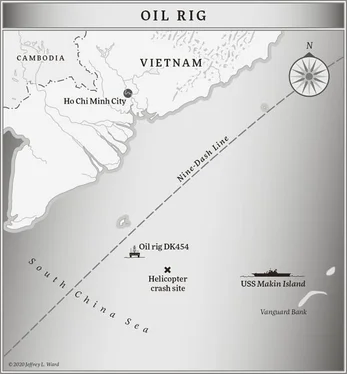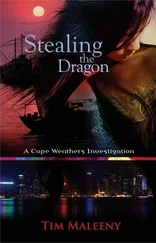“Looks like our walk and talk is going to have to wait,” Ryan said to Montgomery.
“You know where to find me, Mr. President.” He smiled, then left through the main door, presumably to go to his office in W16.
“Burgess and Adler are on their way,” Foley said. She was in her sixties, close to Ryan’s age, though she’d been a career intelligence officer, working the street during the iciest days of the Cold War while he was still in grad school. “I’ve looped in CIA and FBI as well.”
Ryan looked at his watch, a Rolex GMT Cathy had given him years before, and motioned toward the twin couches in the Oval.
“Please sit. I’ll see what I can do about rustling you up some coffee.”
Robbie Forestall, in his khaki work uniform, took a half-step forward. “I’ll take care of that, Mr. President. I took the liberty of putting the night steward on notice that you might be asking.”
“Very well,” Ryan said. “Looks like you all have me at something of a disadvantage.” He shot a narrow eye at van Damm. “It’s enough to call in the secretaries of state and defense along with the directors of CIA and FBI, but not enough to wake me?”
“My call,” the chief of staff said. “Mary Pat and I talked it over.”
Ryan took his customary seat in the Queen Anne chair beside the fireplace while Foley sat nearest him on the couch to his right. Van Damm took the couch opposite her. Forestall remained standing to meet the Navy steward when he came in with the coffee service.
Scott Adler, Bob Burgess, and the two directors arrived moments later. All of them knew that a call from van Damm was a call from the President and skipped whatever it was they had to skip to arrive as soon as humanly possible. Burgess still had a piece of tissue on his jaw he’d used to stanch a shaving cut.
The coffee arrived at about the same time as the FBI director. CIA director Jay Canfield brought up the rear.
As was his custom, Ryan poured the coffee for his guests. Mary Pat started her briefing while he worked.
“Mr. President, officers from the Chinese Ministry of State Security are actively looking for one of their top scientists. A man named Liu Wangshu has disappeared.”
The group nodded with varying levels of recognition. D/CIA Canfield had been briefed nearly as much as Foley, but the others were just being made aware of the situation along with the President. Some did, however, know of Liu.
“Engineering professor in Huludao,” Secretary of Defense Burgess said. “Where the Chinese are building some of their ballistic missile and fast-attack submarines.”
SecState Adler tapped his crossed knee while he peered over the top of his coffee cup. “I feel like the Chinese ambassador introduced him to me at an embassy function last year. The whole thing seemed highly choreographed. The ambassador wanted to demonstrate to us what intelligent scientists they have working for them. Liu is kind of an eccentric guy, if I remember right.”
Director Canfield nodded. “You could call him that.”
Burgess scoffed. “A blue dress shirt could be considered outside the norm to the powers that be in Chinese politics. Liu wears blue jeans, rolls up the sleeves of his paisley shirts, and keeps his hair over his collar.”
Adler nodded. “I distinctly remember thinking he was a Chinese Austin Powers.”
“You’re an apt judge of character,” Foley continued. “He’s made the news several times for dating much younger women. Behaviors that Beijing wouldn’t put up with for a minute but for the fact that he’s single-handedly responsible for the great leaps forward the PLAN has made in submarine technology over the past three years.”
“What kind of tech?” Ryan said. Submarine technology had been a pet project of his for years, since—a very long time ago.
“Propulsion engineering, Mr. President,” Canfield said. “Beyond that, we’re not exactly certain. We know both Beijing and the PLA-Navy brass have given Professor Liu three separate awards. One of them is the Order of the Republic—the highest in the country for someone not in the military—similar to our Medal of Freedom.”
The secretary of defense spoke up again. “China hasn’t had what you could really call a fighting Navy since the fifteenth century. And frankly, Mr. President, I’m not sure they do now. President Zhao is loud and proud about his growing fleet of technologically advanced submarines, but many of the details have yet to be confirmed. Don’t misunderstand me. I’m not saying we underestimate him. We should just take him with a grain of salt.”
Ryan took a sip of his coffee—strong and black—and gave a contemplative nod. “We project our force with carrier groups. Beijing wants to rely on a weapon you can’t see but know is out there somewhere, hiding …” He shook his head. Acid from the coffee and a healthy dose of the unknown churned in his empty stomach. “And we like our submarines, too. They make for a pretty damned fine deterrent.”
“We know the Chi-Comms have a lot of diesels,” Burgess said. “Some purchased from Russia, some of them developed themselves. And, I have to admit, quieter than I’d like them to be.”
“Some of their sub pens are in Huludao,” Ryan mused. “Where Professor Liu taught before he went missing. Do we suspect foul play?”
“The Chinese do,” Foley said. She glanced around the room, as if to assure herself that no one had snuck in since she last checked. “It goes without saying that this is extremely sensitive information.”
Ryan nodded for her to continue. In the end, he had to trust somebody, and if he could not trust the people around him now, all was lost anyway.
“Our sources tell us that one of the reasons Beijing is so proud of Professor Liu is that he is behind much of their engineering progress in the way of propulsion technology. By that I mean he designed it himself. So much of what they have, they’ve been given by the Russians or stolen from us and reverse-engineered. As Bob so bluntly pointed out, China’s naval exploits have caused them to lose a lot of face in the past few hundred years. Professor Liu is not only a genius, he is their genius, and I cannot understate the importance they place on that fact.
“I believe everyone here is familiar with VICAR, our asset in Russia.” Foley didn’t go into detail, but Ryan knew VICAR was Erik Dovzhenko, an SVR officer who assisted members of The Campus in thwarting an Iranian missile attack. According to Foley, Jack Junior knew the man well and trusted him completely, but father and son never spoke of it.
Foley gave a nod to Canfield.
“Late last night,” he said, “one of our case officers received a flash communication from VICAR. Apparently, MSS operatives first believed the professor had defected or was taken by the Russians. They confronted agents working for the SVR in a Huludao pastry shop near the professor’s home. One of the male Russian agents was killed in the initial contact, while an adult female and her adult brother were taken prisoner. The MSS officers questioned them, but eventually ascertained the Russians didn’t have the professor. According to the female Russian, the Chinese were still working out the details of their theory when a new man kicked in the door and started shooting. She thought he may have been a gangster, but he immediately shot one of the MSS operatives as soon as he burst in. She was just able to escape—”
Ryan raised his hand. “Hang on a minute. Someone other than the MSS officers was shooting?”
“That’s correct, Mr. President. The newcomer. The female SVR agent described him as a tall Asian male with a long coat and a felt hat, a fedora, but she didn’t stay around long enough to get a good look at his face. She told her SVR handler that she heard at least five more shots as she fled down the alley. Local news says three Chinese and two Russians were killed at a Huludao pastry shop in an apparent botched robbery. The SVR report eventually landed on VICAR’s desk. In VICAR’S words: ‘The Chinese know you have Liu Wangshu.’”
Читать дальше











![Александр Ирвин - Tom Clancy’s The Division 2. Фальшивый рассвет [litres]](/books/417744/aleksandr-irvin-tom-clancy-s-the-division-2-falsh-thumb.webp)
